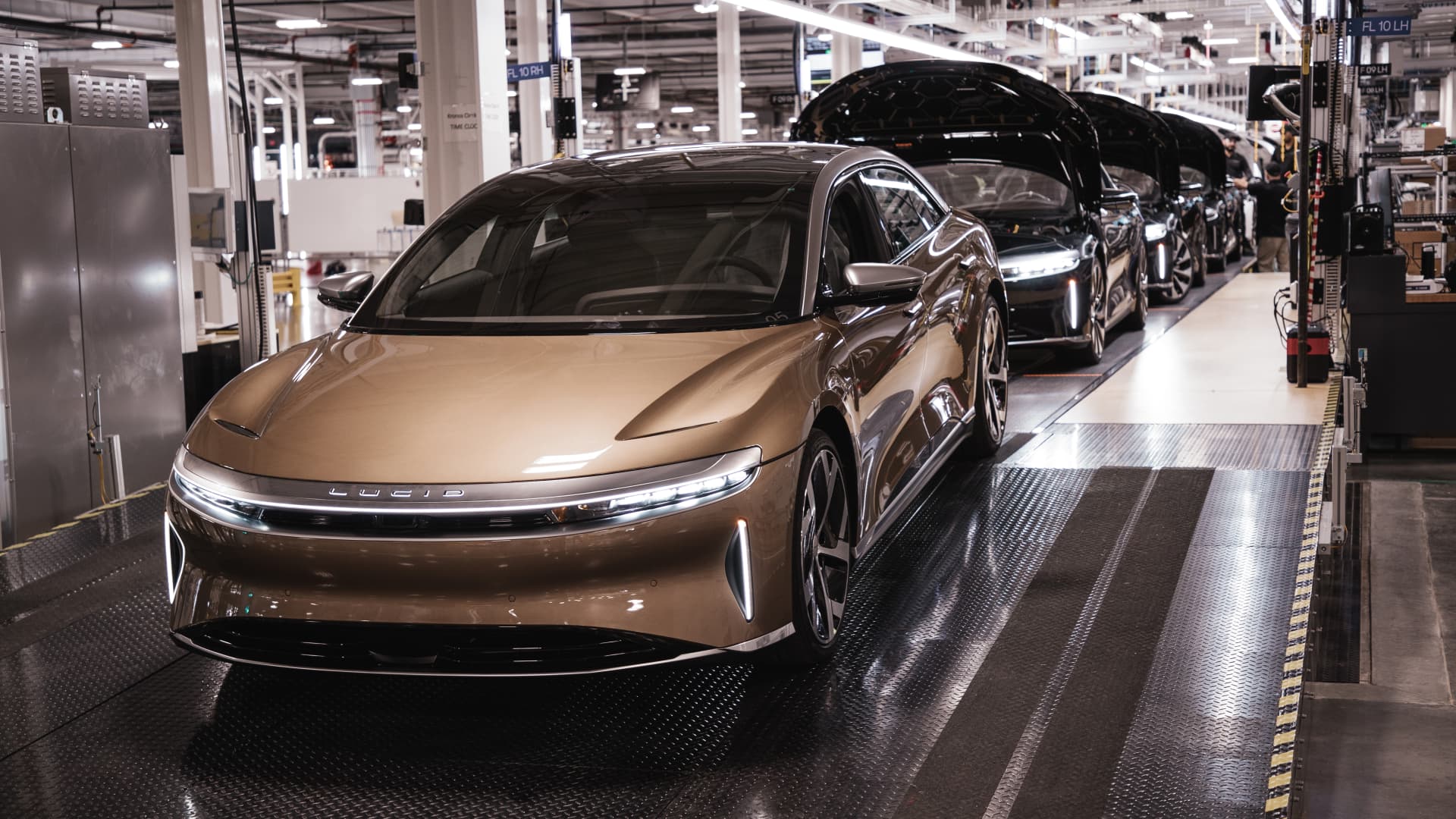Products You May Like
Electric vehicle maker Lucid Group on Tuesday reported that it lost $530 million in the third quarter but confirmed that it’s still on track to make between 6,000 and 7,000 of its Air luxury sedans in 2022.
The company also revealed plans to raise $1.5 billion from investors, including a significant new investment from Saudi Arabia’s public wealth fund, which currently owns about 60% of Lucid.
Shares were down over 13% in after-market trading.
Here’s what the company reported:
- Revenue: $195.5 million, versus $232,000 in the year-ago quarter, when it was beginning production of the Air sedan.
- Loss per share: 40 cents, versus a loss of 43 cents in the year-ago period.
On Oct. 12, Lucid said that it produced 2,282 vehicles and delivered 1,398 vehicles to customers in the third quarter. CFO Sherry House told CNBC in an interview that many of the remaining vehicles are in transit to customers, and that the company’s production totals may exceed deliveries for the next few quarters as it ramps up production.
Lucid also confirmed that it plans to open reservations for its next vehicle, an electric luxury SUV previewed by its Project Gravity show vehicle, early next year.
Lucid said that it had “over 34,000” reservations as of Nov. 7. When it last reported its reservation total, on Aug. 3, it had “over 37,000” customer reservations. Lucid said in April that Saudi Arabia’s government had agreed to buy up to 100,000 of its vehicles over the next 10 years; those vehicles aren’t included in the reservation totals.
The company said it ended the third quarter with $3.85 billion of cash, down from $4.6 billion as of June 30. Its plan to bolster its reserves by about $1.5 billion include $915 million from a series of new investments by Saudi Arabia’s public wealth fund, and $600 million via a traditional secondary stock offering. The funding round is structured to keep the Saudi public wealth fund’s stake in Lucid at its current level.
Lucid confirmed that it’s still on track to meet the revised production guidance it first gave in August, when it said that it expects to produce between 6,000 and 7,000 vehicles in 2022, despite ongoing supply-chain disruptions.
